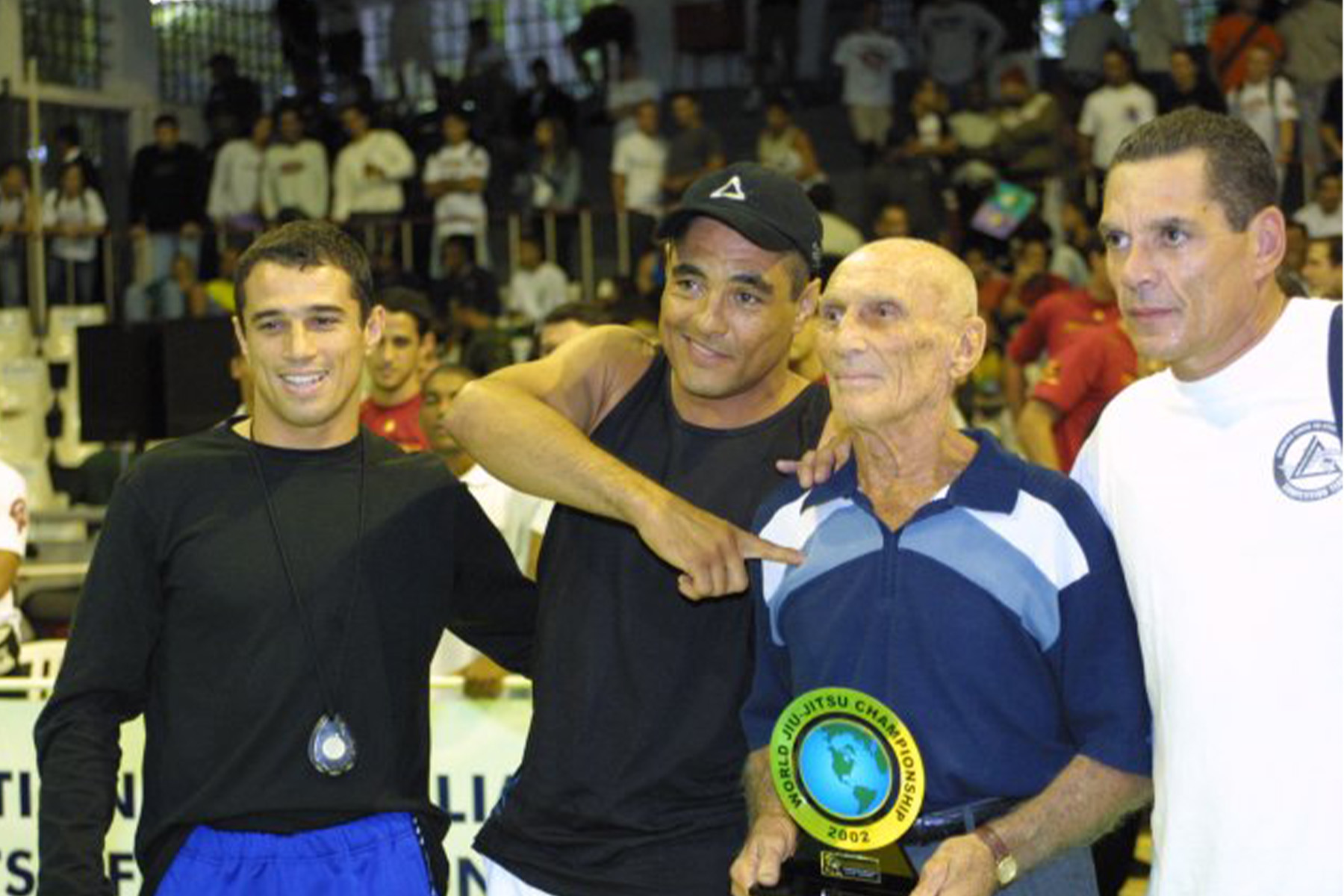The Gracie family has long been revered for introducing Brazilian Jiu-Jitsu to the global stage, establishing a legacy that forever altered the martial arts landscape. They launched the UFC, positioning their art as a way to demonstrate technique over brute force, with Royce Gracie achieving legendary status by defeating larger, seemingly more athletic opponents. However, behind the Gracie mythos, there exists a deeper, unsettling history that is largely unknown to the casual fan.
One of the biggest revelations came from Rickson Gracie’s biography, where he opened up about a hidden mission of his father, Hélio Gracie, and uncle Carlos Gracie: a genetic experiment to create a generation of fighters with “superior” qualities. This wasn’t just about breeding talented fighters through training and discipline; Carlos believed in fathering as many children as possible, especially sons, and urged Hélio to do the same. Between the two, the Gracie brothers fathered 30 children with eight different women.
Hélio confirmed as much himself telling Playboy in 2001:
“PLAYBOY: How many times have you had sex in your life?
HELIO: [Pauses]. Look, I was a world champion who did it only a little. In my estimation, I could have had sex with all of the women in Brazil. But I never had relations with more than 10 women. And I only did it with women who accepted the idea of having children.”
To Carlos and Hélio, this wasn’t a casual endeavor but a carefully orchestrated plan, even involving significant deception. For example, when Margarida, Hélio’s wife, couldn’t conceive, they devised a ruse involving their African-Brazilian nanny, Belinha. With Margarida’s consent, Hélio fathered children with Belinha, and Margarida would wear a fake belly to maintain the appearance of pregnancy, later presenting the child as her own. Even Rickson himself didn’t know of his mixed heritage until much later in life, believing his freckles were due to their Scottish origins and not African.
Excerpt from Rickson Gracie’s book:
“Carlos Gracie decided to father as many children, preferably boys, as possible, and he encouraged my father to do the same. Their goal was to create a clan of fighters. Between 1932 and 1967, Carlos and Hélio fathered thirty children with eight different women; twenty-one of them were boys. When Margarida, my father’s first wife—the woman I consider my mother—was unable to get pregnant, my uncle came up with a plan. My father, with my mother’s knowledge and consent, would impregnate our African Brazilian babysitter, Belinha, who gave birth to me and my older brothers Rorion and Relson.”
“The whole thing was an elaborate ruse. Margarida wore a fake belly during Belinha’s pregnancies, and when the time came for her to give birth, she went to the hospital and came home with a baby. Not even her best friends knew!”
“When I was young and looked at myself in the mirror and saw my freckles, I thought they were from my Scottish blood. Little did I know that I was half African Brazilian!”
Such unconventional family dynamics highlight a rigid and cold perspective on relationships, especially toward women. In interviews, Hélio openly shared his belief that love was a weakness, and that his only interest in relationships was to fulfill his vision of procreation. For him, intimacy was merely a means to an end, a perspective he encouraged his sons to adopt. In an interview with Playboy, Hélio stated that he had never engaged in intimacy without the purpose of reproduction. He actively rejected casual encounters, priding himself on the “self-discipline” to engage only when necessary for creating children.
This strict adherence to gender roles was also apparent in Hélio’s views on women’s independence, which he regarded as unnatural. He claimed that independence led women astray from their “intended roles” as mothers, deriding men who supported this as effeminate or weak. Hélio’s rigid ideas on procreation and relationships went hand in hand with his quest to create a lineage of fighters who would carry on the Gracie name and his vision for BJJ.
In modern terms, some might call this an attempt at eugenics, as the Gracies were essentially trying to shape a generation of fighters by controlling their genetics and environment. In Rickson’s eyes, the discipline that characterized the Gracie family wasn’t limited to the dojo; it extended into the family structure itself, where every relationship, every child, was carefully curated to align with Carlos and Hélio’s ultimate goals.
While the Gracie family’s contributions to martial arts and BJJ are undeniable, their legacy is undeniably complex.


